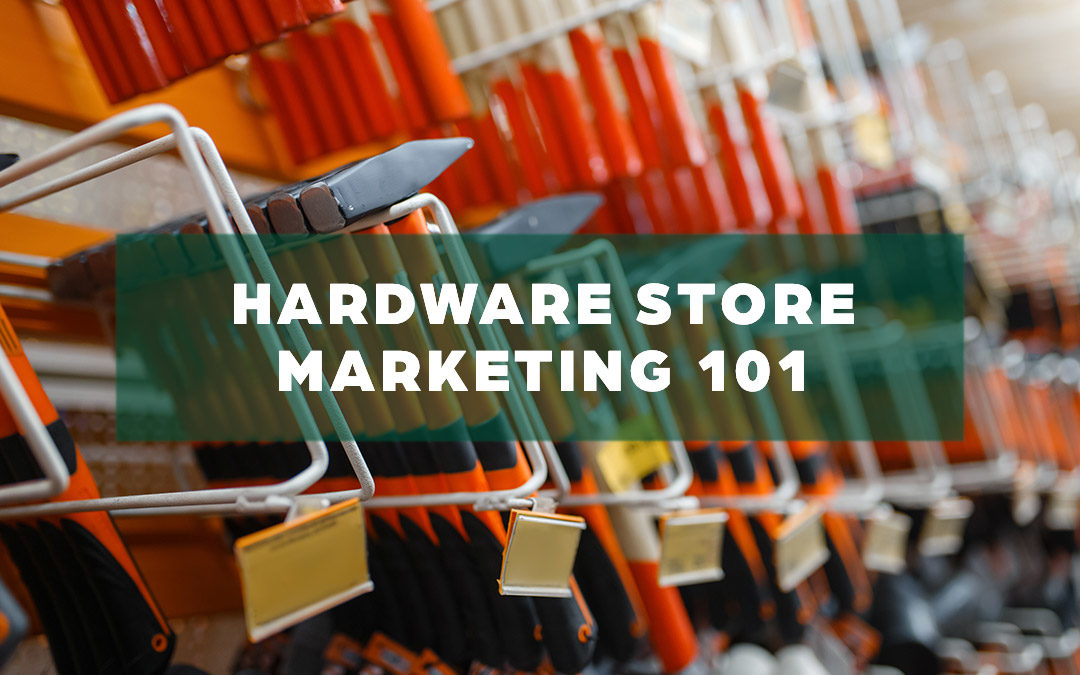Tools To Create A Successful B2B Sales Channel For Your Hardware Store
When done well, B2B relationships can be lucrative, long-term and your best resource for more B2B business. Understanding the core motivators and values of each different type of B2B account and then tailoring your approach is key in setting the foundation for long and profitable partnerships.
B2B sales is such a different ball game than regular hardware sales, you can almost think of it as a separate business from your day to day hardware store. B2B clients aren’t going to walk in your front door and buy what they need like the rest of your customers, you’ve got to have a dedicated person (or team) and a strategy for ongoing lead generation and relationship cultivating. Because of this, your B2B business needs to be approached with a different mindset and different tools to generate leads, get your name out there and build recurring revenue with multiple, long-term accounts.
The Top 5 Tools For Building A Successful B2B Business & Supporting Your B2B Salesperson Or Team.
1. Separate digital profiles on social media and on your website
Your B2B client is different from your regular store customers and you need a different social media approach. The problems you solve for home owners aren’t going to be the same ones you solve for larger businesses and you need to speak directly to those business owners, even if they also shop your store for general hardware needs. Set up a separate Facebook and/or Instagram account just for B2B and make sure you dedicate a page on your website that links off your top navigation bar, so it’s easy to find.
2. Sales decks, brochures, in-store signage
Your B2B team needs support – from the frontline team (we’ll get to that in number six) – but also from basic marketing tools like single-sheet handouts, sales decks and in-store signage.
In store signage has hidden benefits – besides drawing attention to a service your regular customers might not know you offered, it’s a place your frontline team can be reminded to keep an eye out for potential B2B clients.
Sales decks can be too long and overused, but if your team puts together a short, simple, clear sales deck outlining your price breaks, special orders and other ways in which you solve your B2B customers’ problems, it serves not only as a way to share your B2B strengths with potential clients, but as a way for your sales team to dive deep, think about and learn the ways your program is the answer. Have your sales person or team practice the deck with front-line staff, so they get the details down and can recall – on the fly – key sales points when they are out networking or at the grocery store. The added bonus is your front-line team will better understand (and be able to talk about) the B2B business model on the floor.
3. Networking and events
The best way to get more B2B customers is to have a salesperson or team who is proactive and invested in networking and your community. Most small business owners highly prefer to buy locally, and 92% of consumers trust referrals from people they know. Use that. Every B2B salesperson should spend a decent chunk of time each week networking and building relationships, even if some of those are just with connectors. Never underestimate the power of a good connector relationship.
4. CRM coordination
Customer relationship management or CRM sounds like a tech buzzword, and it is, but for good reason. CRM is a necessity – that most hardware stores overlook – for managing their B2B revenue stream. A simple CRM is enough to let you and your team track the sales journey, history, preferences, and details that will make you stand out and be the go-to resource for your customers – and potential customers. CRM tools help you organize customer information and give you the ability to access it across multiple departments. CRM helps you build customer profiles and plan a strategy for connecting with prospective clients and lead them through to being a repeat B2B customer.
5. Lead generation and nurture automation
If you have a small team or just one person, it might seem like automated software for generating and nurturing leads isn’t necessary, but it can be a life saver. It always seems like as owners we can do everything, especially in marketing, but having a dedicated system to guide your steps and provide a customer journey that turns people from a lead into a repeat customer is invaluable – and you really can’t do everything yourself.
6. In store support
This is a bigger one than you might think. Potential B2B clients walk through your door every day, and while your B2B team is responsible for generating the bulk of your B2B business, your front line people are in contact with dozens and maybe hundreds of people a day. Training your front-line team to support your B2B business is a great way to build your bench and empower your team. Teach them how to build relationships by asking open-ended questions about projects and needs; how to recognize a potential B2B customer’s answers; and how to get the necessary information to your B2B team.
Conclusion
This may seem like a lot, but this is a long game. Start with one or two key tools and add on from there. B2B is built over time and with a solid foundation, you’ll create a long-term revenue stream that compliments your day to day hardware sales.
If you’re curious about how you can adopt tips like these into your B2B marketing efforts, click below to grab a quick meeting for us to chat! With Gratitude, Rand


